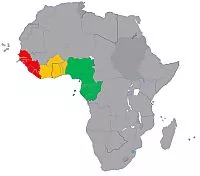At the close of a long day, Songhai's Managing Partner Nana Ampofo and Social Impact Director Lord-Gustav Togobo go back and forth about the challenges facing impact-oriented clients investing in Ghana. At the top of the list, it turns out, are 'soft' issues surrounding communication between investors and principals, principals and customers – four of which are laid out below:
- Trust: Rentier economics in our countries is well-documented and as such, investors are likely to touch down in Accra and drive to the project site accompanied by concerns about self-interested officialdom. However, local stakeholders will often have a similarly low opinion of the 'outsiders' – informed by their experience of programmes or investments quoted in the millions, high living standards of expatriate staff and the slow pace of progress. 'Out of the total committed, more is going to personnel pretending to work than anything else' is a typical refrain. The result is a 'them and us' culture which, if not addressed properly, can harm the quality of communication, warp relations and working practices.
- Expectations: And yet, and yet. Prevailing incentives in major impact-oriented sectors such as agriculture, healthcare and social housing can be an impediment to productivity. For example, as stated by a policy adviser at a recent Savannah Development Authority (SADA) dialogue, business pipelines are distorted by government waivers. There can also be an expectation of 'handouts', which, if denied, might create a constituency that will work to frustrate the proposed intervention or at the very least, not assist.
- Disjointed Strategies: There is no shortage of individuals launching businesses in Ghana with an implicit and real commitment to creating social goods such as healthcare or jobs for communities that need them. They are motivated by profit certainly but alongside that are goals for society at large. However, at times, fear of alienating categories of investor or customer will create distortions or contradictions in business plans or marketing strategies.
- How to Say No: Generally-speaking, there is an aversion in our community to delivering the word, 'no'. Points one, two and three above notwithstanding, local partners are often reluctant to display their disagreement directly. With everyone bending over backward to be polite, clients may miss opportunities to get on the same page as their stakeholders. Instead, things just will not happen as expected or seemingly agreed.
In this context, it is important that clients prioritise culture and that they adopt a listening posture concerning internal and external stakeholders. Learning how others have made it work, or failed, taking time to build trust and understand the terrain – in other words 'local intelligence' – are equally key. Finally, in deciding how to engage, bear a Songhai maxim in mind, 'you will spend money or you will spend time'. In setting strategy, it is safer to keep that expectation in mind than to seek short-cuts to making a profit and doing good.
The content of this article is intended to provide a general guide to the subject matter. Specialist advice should be sought about your specific circumstances.


